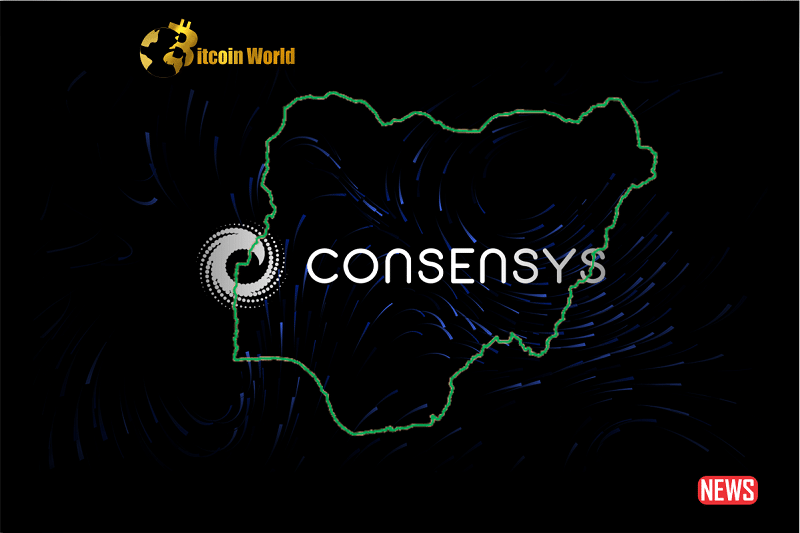Ever feel like everyone’s talking about Bitcoin, but you’re not quite sure what they’re saying? You’re not alone! Cryptocurrencies have exploded into the mainstream, becoming a hot topic for investors and even everyday businesses. A fascinating new study by ConsenSys and YouGov confirms this buzz, revealing that a whopping 92% of people across the globe have at least heard of cryptocurrencies like Bitcoin. That’s an impressive level of recognition, isn’t it?
Global Crypto Awareness: The Numbers Don’t Lie
The ConsenSys survey, which polled over 15,000 individuals across 15 nations, paints a clear picture: crypto is on everyone’s radar. With an average participant age of just 18, this widespread awareness signals a fundamental shift in how younger generations perceive and interact with finance.
But Awareness Isn’t Understanding: The Web3 Puzzle
Here’s the interesting twist: while crypto awareness is sky-high, understanding the next evolution – Web3 – is still in its early stages. Think of it this way: you might know what a car is, but do you know how the engine works? The survey highlights this knowledge gap:
- Only 8% of respondents felt truly confident in their understanding of Web3.
- Just 24% were aware of Web3 as a concept.
- A mere 8% considered themselves “very familiar” with it.
So, while the foundation is laid with crypto awareness, building the future of the decentralized internet requires more education and practical experience.
Regional Differences: Who’s Leading the Crypto Charge?
Here’s where things get really interesting. The study uncovered significant regional variations in crypto awareness and understanding. Guess who’s leading the pack? Developing regions!
Nigeria’s Crypto Prowess: A Shining Example
Nigeria stands out as a beacon of crypto recognition. An astounding 99% of Nigerian respondents reported being aware of cryptocurrencies. Even more impressive, a significant portion demonstrated a solid understanding of blockchain technology. This enthusiasm contrasts sharply with some developed nations.
Developed Nations: A More Cautious Approach
In contrast to Nigeria and other developing nations, European countries and Asian powerhouses like Japan and South Korea showed higher levels of skepticism and a less comprehensive understanding of cryptocurrencies. This could be attributed to various factors, including stricter regulations and established traditional financial systems.
Why the Divide? Crypto as a Solution in Developing Nations
Why are developing nations like Nigeria, South Africa, and Brazil so enthusiastic about crypto? The answer often lies in the unique financial challenges they face.
- Unstable Currencies: Countries grappling with high inflation see cryptocurrencies as a potential hedge against devaluation. Think of Argentina, where currency fluctuations have driven a greater inclination towards crypto as a store of value.
- Limited Financial Infrastructure: In regions with less developed banking systems, cryptocurrencies offer an alternative way to send and receive money, bypassing traditional intermediaries.
Bridging the Gap: The Path to Web3 Adoption
While crypto has captured global attention, Web3, with its promise of a decentralized internet, still needs to gain broader understanding. Familiarity with concepts like the Metaverse and NFTs hovers around 34% to 36%, according to the survey. So, how do we move from awareness to adoption?
The Power of Practical Application
The key lies in demonstrating the real-world utility of Web3 technologies. As more practical applications emerge, understanding and adoption are likely to follow. Think about it:
- Decentralized Finance (DeFi): Offering new avenues for lending, borrowing, and trading without traditional institutions.
- Non-Fungible Tokens (NFTs): Revolutionizing digital ownership in art, collectibles, and even real estate.
- Decentralized Autonomous Organizations (DAOs): Creating new models for community governance and collaboration.
Moving Forward: Education and Real-World Use Cases
The ConsenSys study delivers a powerful message: the world is aware of crypto. Nigeria’s impressive adoption rates highlight the potential for digital currencies to address real-world financial challenges. However, the journey to a fully realized Web3 requires continued education and a focus on practical applications. As we see more tangible benefits and use cases for Web3 technologies, we can expect to see a corresponding increase in understanding and adoption.
The future of the internet is being built, block by block. While the foundation of crypto awareness is strong, the next step is to empower individuals with the knowledge and tools to navigate and build upon the decentralized web. The conversation has started, and now it’s time to deepen the understanding.
Disclaimer: The information provided is not trading advice, Bitcoinworld.co.in holds no liability for any investments made based on the information provided on this page. We strongly recommend independent research and/or consultation with a qualified professional before making any investment decisions.


